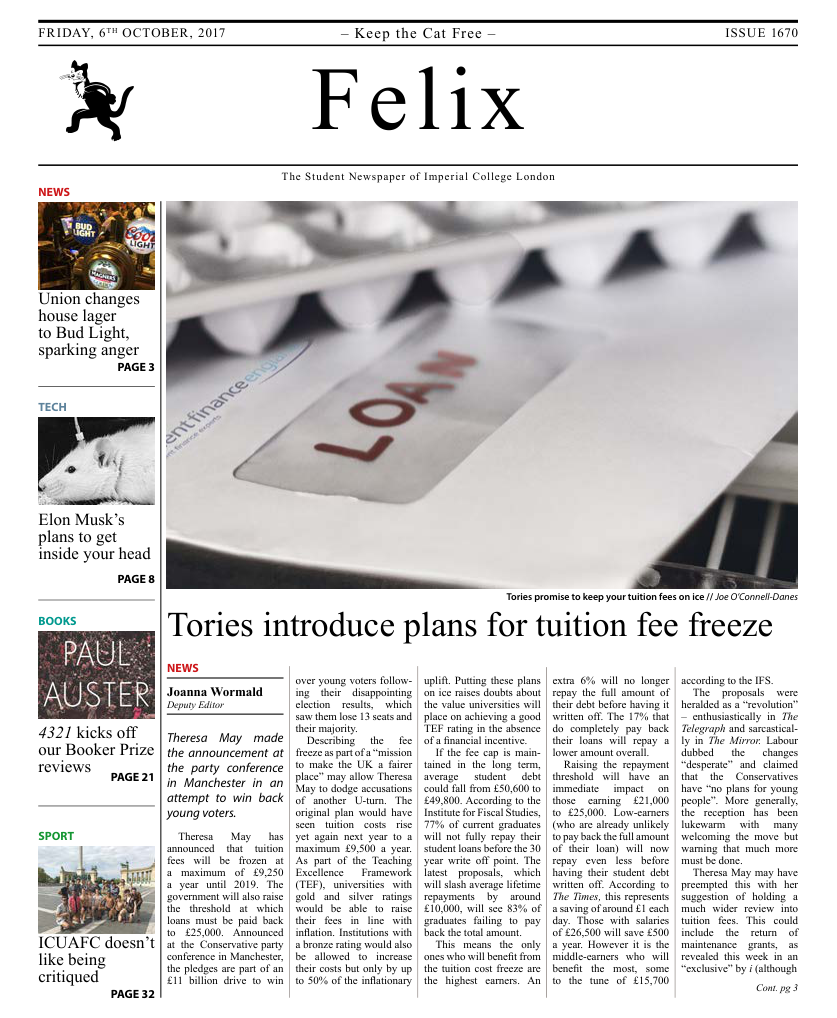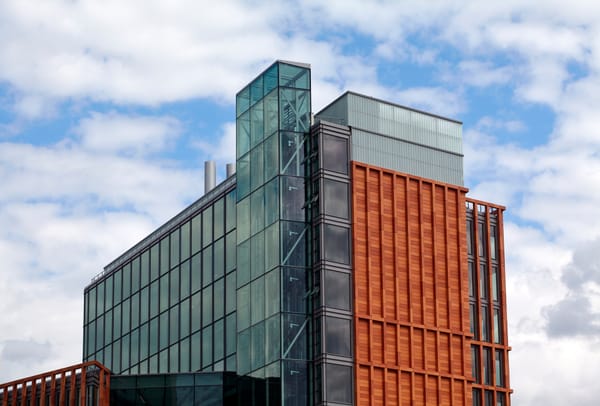Stella taps run dry as Union switches house lager to Bud Light
The Union announced the change earlier this week, which has prompted ire from some students.

Union bars have poured their last pints of Stella Artois 4%, as they switched their house lager over to Bud Light on Monday.
The move was announced to students by Matt Blackett, Deputy President (Finance & Services), in a Facebook post on the morning of Monday 2nd October. The change comes after 5 years of Stella 4 being the house larger across Beit bars – 568, Union Bar, and Metric – h-bar, and Reynolds.
The prices will remain the same as 2016/17, at £2.70 for a pint of Bud Light. This is in line with Blackett’s manifesto promise of “no above-inflation drink prices”. The Union claims the price freeze will save students more than £10,000, since remaining with Stella would have required an increase in price by 10p.
In a statement, Blackett said “the opportunity arose for us to reduce the cost of our house larger whilst also increasing the investment in other areas of the bars to improve student experience, whilst not losing any quality in the products we offer”. He said that this increased investment should “give you a better service and an improved experience at all of our venues.”
While Stella 4 has, as the name suggests, a strength of 4% ABV, Bud Light only has a strength of 3.5%. On BeerAdvocate, which describes itself as “your go-to resource for beer, powered by an independent community of enthusiasts and professionals”, Stella 4 achieves a rating of 2.97 out of 5, while Bud Light is on 1.86.
“One student described Bud Light as ‘literal piss’”
One of the bar staff Felix spoke to said that they had overheard a customer react to the change by saying it was “a cold day in hell”. Students who spoke to Felix expressed similar sentiments: one described Bud Light as “literal piss”; another said that the “hypocrisy” of the Union’s failure to consult students on the change, while criticising the College for making changes to Campus Services without consultation, was “chilling”.
It wasn’t all bad news though: one student claimed that Bud Light made a much better mixer for his snakebite.
Blackett told Felix: “We constantly change the offering in our bars with no student consultation, as it is not always appropriate and timely for feedback from students to be garnered.” He explained that the decision on the change needed to be made within two days of the offer being recieved, and his being elected on a manifesto point to “keep price increases down” meant he had “sufficient mandate” to make the decision.
As part of their “Our promises to you” section, Imperial College Union, which is a not-for-profit charity, states that “the range of products we offer will be regularly reviewed to ensure we are providing you with the products you want”. They also promise that “prices will be competitive”, and they will “regularly let you have a say in the products we sell”.










